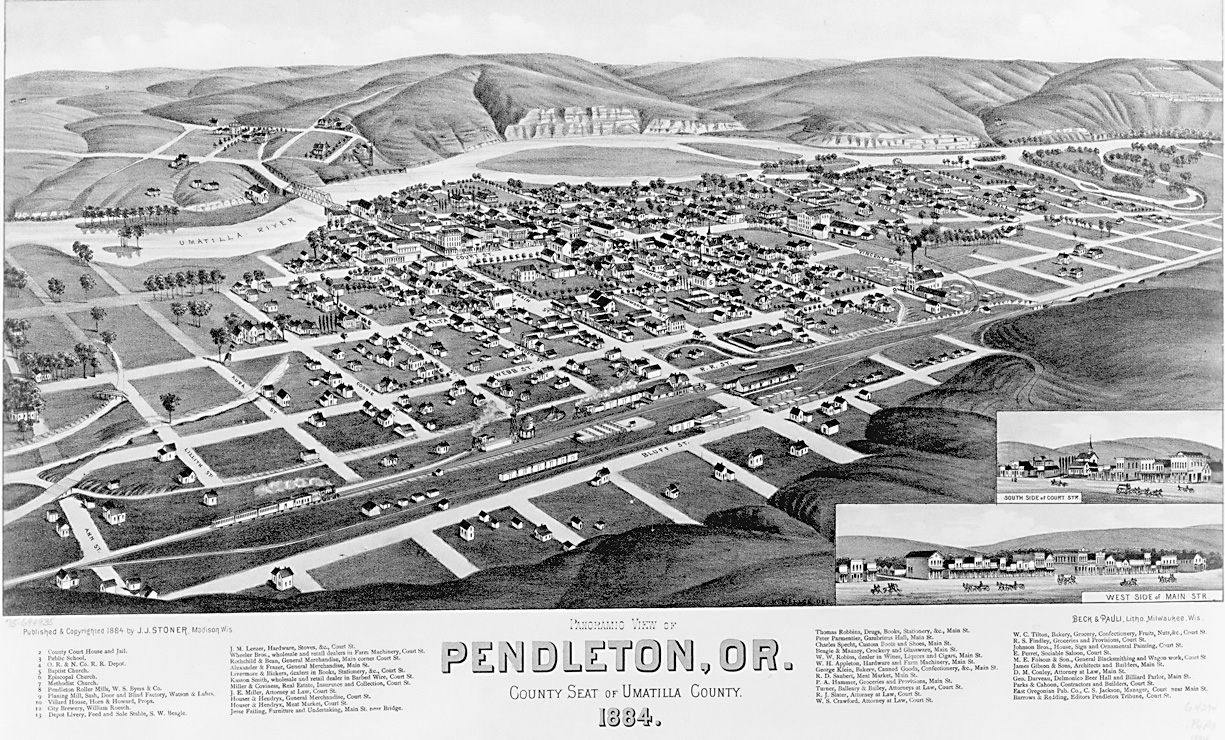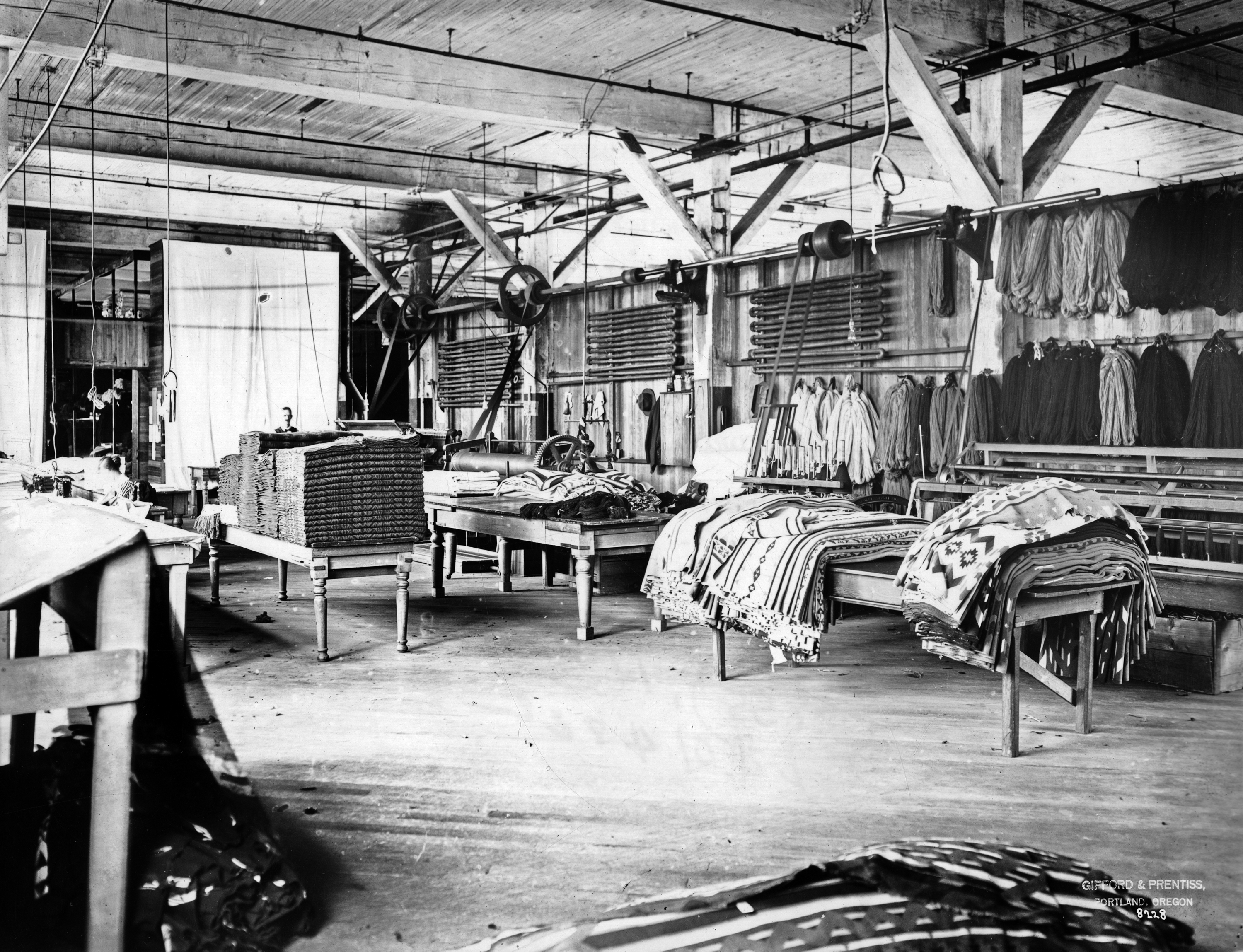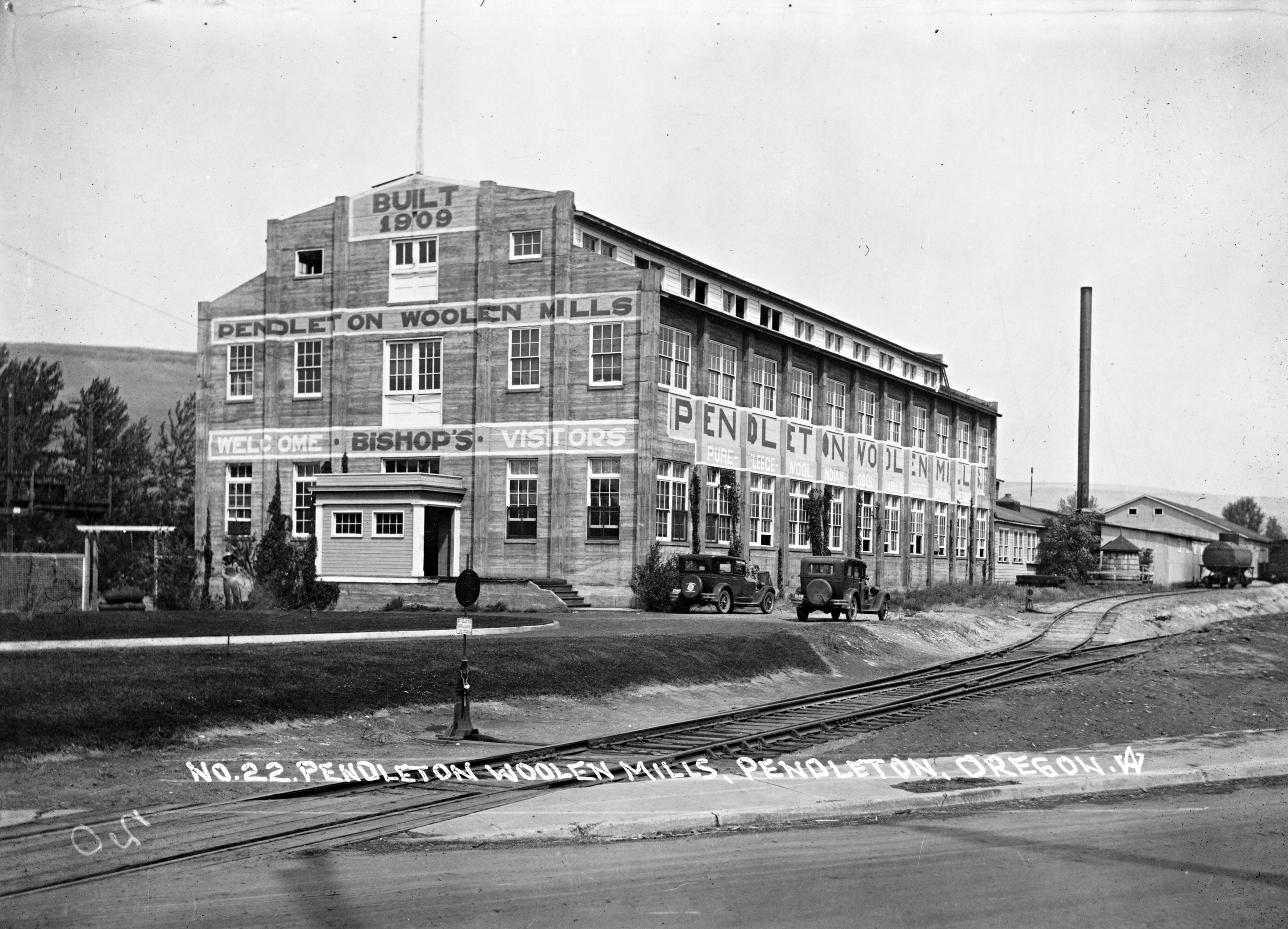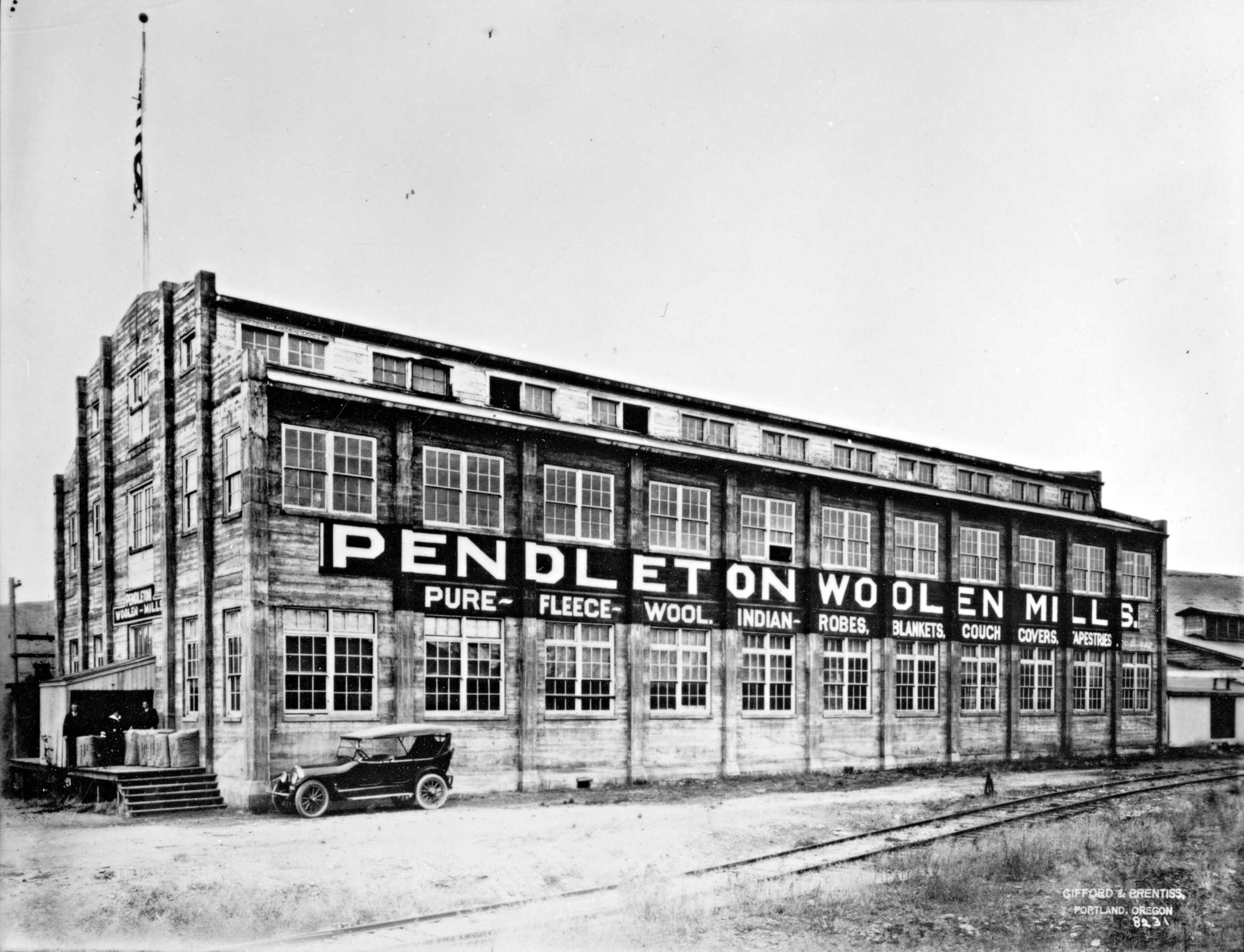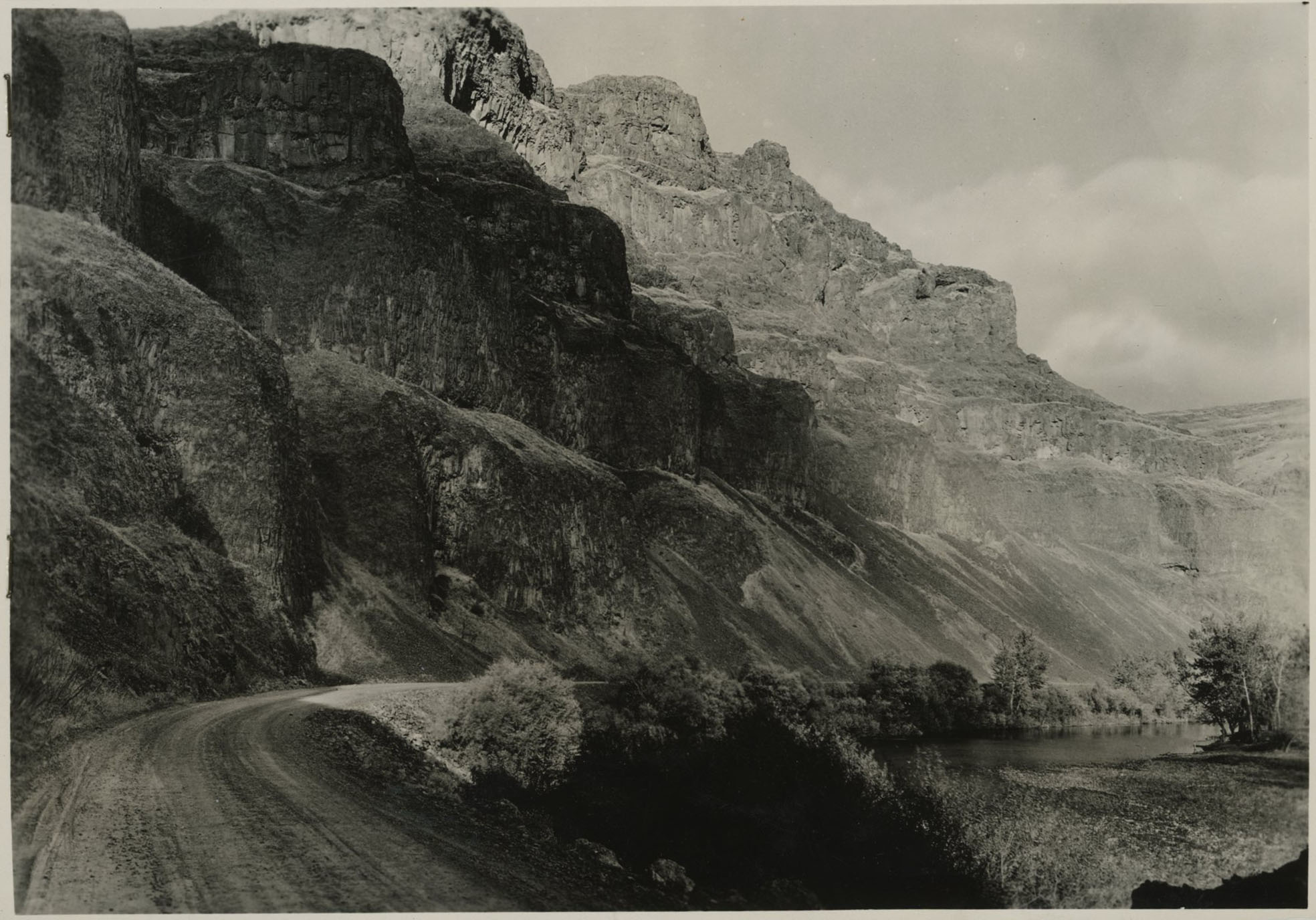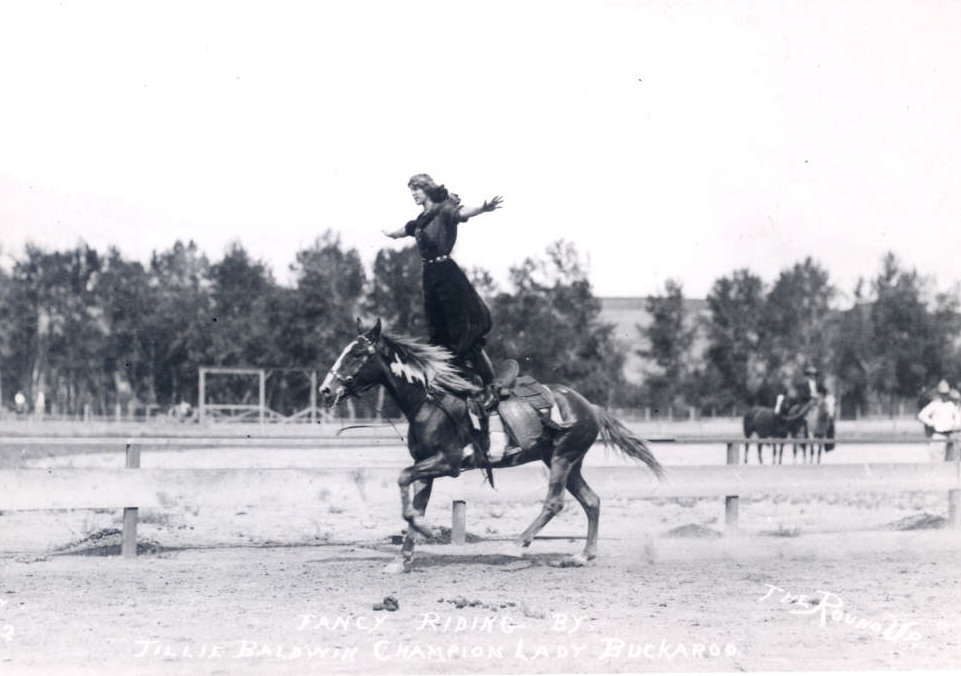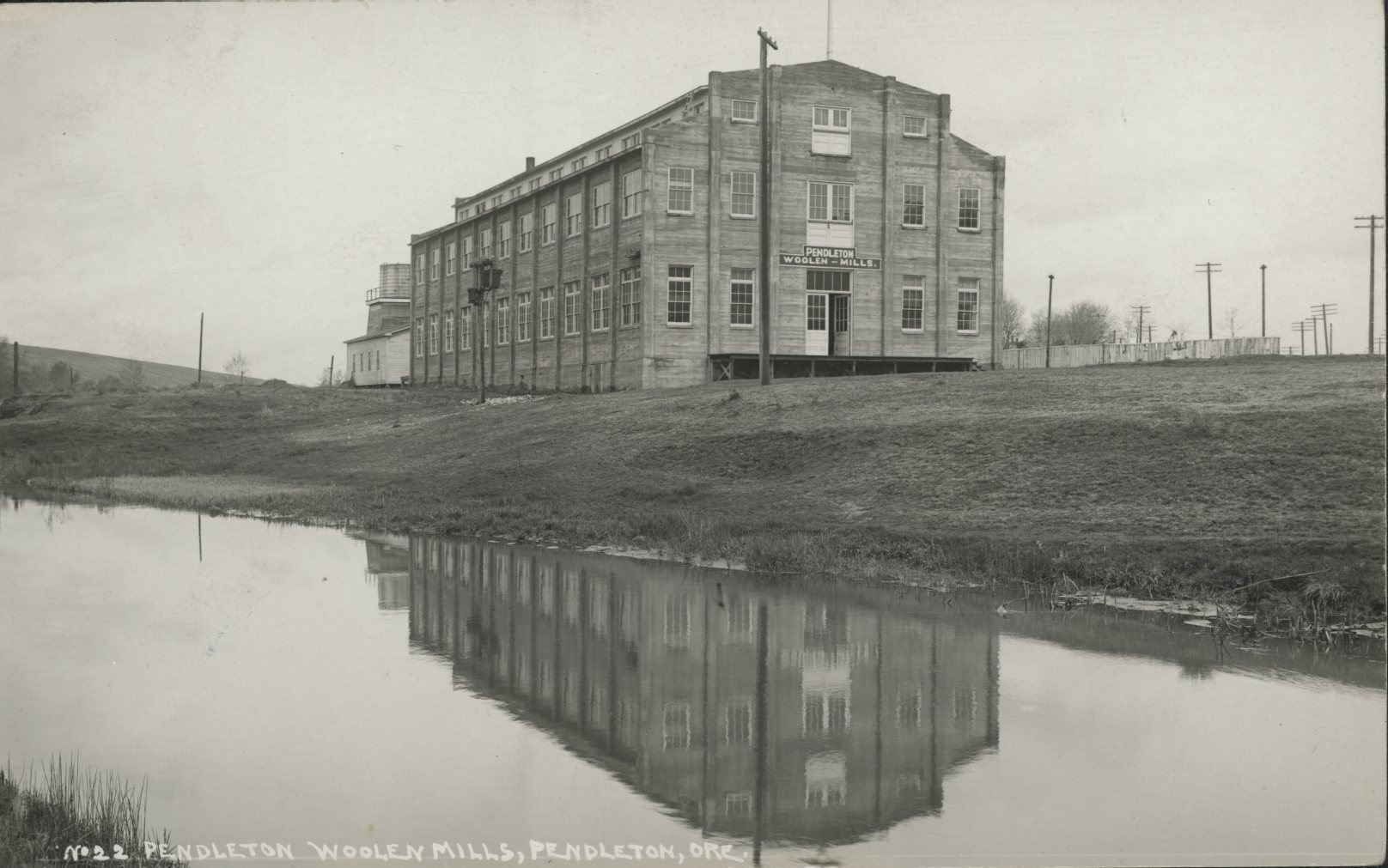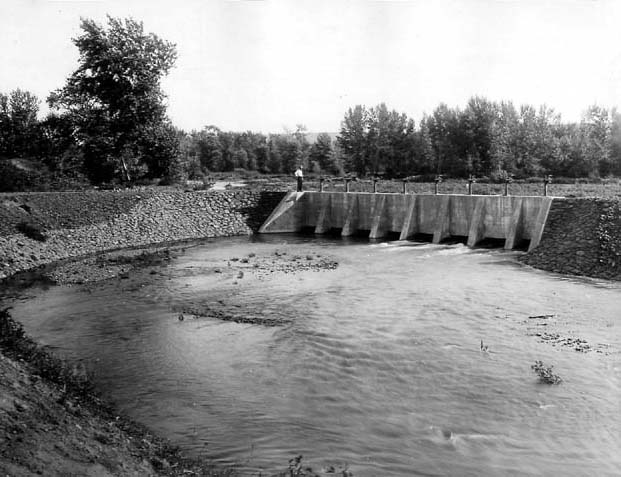Pendleton, a city of 17,107 in the 2020 census, sits in the foothills of the Blue Mountains. The city center is built on the south bank of the Umatilla River, which runs roughly east and west through town. Pendleton’s motto is “The Real West,” and it prides itself on its agricultural and ranching past. It is home to the Pendleton Woolen Mills, which originally made blankets for trade with nearby Native Americans, and the Pendleton Round-Up, one of the ten largest rodeos in the world.
The earliest commercial business in Pendleton dates to 1851, when Dr. William C. McKay (pronounced mack-EYE) established a trading post at the confluence of McKay Creek and the Umatilla River. A post office, Marshall Station, was established in 1865. The community was later renamed Pendleton after George H. Pendleton, the Democratic vice-presidential candidate of 1864, and was incorporated on October 25, 1880.
During the late nineteenth and early twentieth centuries, Pendleton was home to a large population of Chinese laborers who had come to work on the railroads. An underground tour is a popular tourist attraction, where visitors are led into basements of downtown businesses where opium dens, illegal gaming parlors, and a Chinese laundry were purported to have existed during the 1890s. The information provided in the tour, however, has no historical basis and distorts the history of the Chinese community in Pendleton.
From its early beginnings, Pendleton was a railhead that served as a shipping point for the wool industry, which included the many sheep ranches in the area and the Pendleton Woolen Mills, originally a wool-scouring plant. Early on, the company began producing blankets for trade with Native Americans, and it eventually expanded its offerings to include clothing. Pendleton blankets are now prized for their quality and distinctive designs.
The Pendleton Round-Up is an annual event that can quadruple the town's population. Occurring in the second full week in September, the Round-Up features four days of rodeo; two parades, including one that prohibits motorized vehicles or rubber tires; a concert; and the Happy Canyon Indian Pageant, which bills itself as the “Epic Drama of the West.” The Round-Up is known for including Native American participants in a powwow dance competition, the Indian Village, Happy Canyon princesses, and the American Indian Beauty Pageant. One of the larger-than-life figures from Pendleton’s colorful history is Sheriff Tillman “Til” Taylor, one of the founders of the Round-Up. He was shot to death in a jailbreak in 1920, and a park in downtown Pendleton bears his name.
Pendleton also has its place in Oregon literature, providing the setting for Craig Lesley’s Winterkill and likely the setting for H.L Davis’s short story, “Old Man Isbell’s Wife.” Last Go Round: A Real Western, by Ken Kesey and Ken Babb, is a fictionalized account of the 1911 Pendleton Round-Up and its legendary ending in which three cowboys—Jackson Sundown, a Nez Perce; George Fletcher, an African American; and John Spain, a Caucasian—tied for the all-around championship. When Spain won the tie-breaker, there was a general uproar from the crowd, which believed the results were skewed. Reportedly, Sheriff Taylor took up a collection from the crowd by tearing up pieces of Fletcher's hat and selling them. He then awarded the money to Fletcher as the people's champion.
Pendleton benefits from its proximity to the Confederated Tribes of the Umatilla Indian Reservation. CTUIR operates the Wild Horse Casino and golf course; the Tamástslikt Cultural Institute, an interpretive center that tells the story of the effects of the Oregon Trail from the Native American perspective (the only one of its kind); and Nixya’awii, a charter school that is focused on Native American culture, native languages, and the tribal community. Nixya’awii was the Oregon charter school of the year in 2006-2007. Crow’s Shadow, an institute for the arts, was co-founded by painter James Lavadour (Walla Walla/Chinook), a Pendleton native. CTUIR also administers Wildhorse Foundation, a philanthropic agency that supports projects in northeast Oregon. While the city of Pendleton shares a border with the reservation, CTUIR has its own government and laws.
Pendleton serves as a cultural center for eastern Oregon, with two symphony orchestras, a strings program in the public schools (the only one in eastern Oregon), a thriving arts center, and Blue Mountain Community College. Many touring bands (mostly alternative and bluegrass) stop on their way from Portland to Boise to play at the Great Pacific in downtown Pendleton. Pendleton is also home to the Eastern Oregon Correctional Facility, a medium security adult-male correctional facility. The business district has undergone recent revitalization, anchored by the Hamley building, an award-winning restoration of one of Pendleton’s earliest saddle-making establishments, and The Prodigal Son Brewery, which has resurrected Pendleton’s early brewing tradition.
-
![Pendleton, 1894.]()
Pendleton 1894 LOC 201098.
Pendleton, 1894. Library of Congress, 201098
-
![Pendleton flood, 1906.]()
Pendleton, flood, 1906, ba014855.
Pendleton flood, 1906. Oreg. Hist. Soc. Research Lib., ba014855
-
![Wheat teams in Pendleton, about 1938.]()
Pendleton, wheat teams at, OrHi 12553.
Wheat teams in Pendleton, about 1938. Oreg. Hist. Soc. Research Lib., OrHi 12553
-
![Interior of Pendleton Woolen Mills.]()
Pendleton Woolen Mills, interior, Gi 8228.
Interior of Pendleton Woolen Mills. Oreg. Hist. Soc. Research Lib., Gi 8228
-
![Pendleton Woolen Mills (date unknown).]()
Pendleton Woolen Mills, OrHi 17193.
Pendleton Woolen Mills (date unknown). Oreg. Hist. Soc. Research Lib., OrHi 17193
-
![Pendleton Woolen Mills (date unknown).]()
Pendleton Woolen Mills, Gi 8231.
Pendleton Woolen Mills (date unknown). Oreg. Hist. Soc. Research Lib., Gi 8231
-
![Interior of Hamley and Co. store, 1907.]()
Pendleton, Hamley Co., interior, OrHi 61772.
Interior of Hamley and Co. store, 1907. Oreg. Hist. Soc. Research Lib., OrHi 61772
-
![Hamley Co, store (date unknown).]()
Pendleton, Hamley Co., OrHi 61767.
Hamley Co, store (date unknown). Oreg. Hist. Soc. Research Lib., OrHi 61767
-
Pendleton Round Up, aerial, Orhi 65116.
Pendleton Round Up grounds (date unknown). Oreg. Hist. Soc. Research Lib., OrHi 65116
-
![Yakama Indians in Pendleton, about 1912.]()
Pendleton, Yakima Reservation, 1912, CN 095615.
Yakama Indians in Pendleton, about 1912. Oreg. Hist. Soc. Research Lib., CN 095615
-
![Main Street, Pendleton (date unknown).]()
Pendleton, main street, ba014850.
Main Street, Pendleton (date unknown). Oreg. Hist. Soc. Research Lib., ba014850
-
![Pendleton Bird's-eye view (unknown date).]()
Pendleton, birds eye view of, ba014764.
Pendleton Bird's-eye view (unknown date). Oreg. Hist. Soc. Research Lib., ba014764
-
![Old carriage bridge at Pendleton (unkown date).]()
Pendleton, bridge at, ba014770.
Old carriage bridge at Pendleton (unkown date). Oreg. Hist. Soc. Research Lib., ba014770
Related Entries
-
![Black Cowboys in Oregon]()
Black Cowboys in Oregon
The history of African American cowboys in Oregon begins well past the …
-
![Blue Mountains]()
Blue Mountains
The Blue Mountains, perhaps the most geologically diverse part of Orego…
-
![Pendleton Field]()
Pendleton Field
On November 29, 1940, the War Department announced that Pendleton, Oreg…
-
![Pendleton Round-Up]()
Pendleton Round-Up
The Pendleton Round-Up began in September 1910 as a frontier exhibition…
-
![Pendleton Woolen Mills]()
Pendleton Woolen Mills
Pendleton Woolen Mills opened in 1909 in a defunct woolen mill that had…
-
![The Myth of Chinese Tunnels in Pendleton]()
The Myth of Chinese Tunnels in Pendleton
Pendleton is one of several Oregon communities rumored to have undergro…
-
![Umatilla River]()
Umatilla River
The Umatilla River flows out of the forested northwestern slopes of the…
Related Historical Records
Map This on the Oregon History WayFinder
The Oregon History Wayfinder is an interactive map that identifies significant places, people, and events in Oregon history.
Further Reading
Bales, Michael and Ann Terry Hill, with Karen Kirtley, ed. Pendleton Round-Up at 100: Oregon's Legendary Rodeo. Pendleton, Ore.: East Oregonian Publishing Company, 2009.
Macnab, Gordon. A Century of News and People in the East Oregonian, 1875-1975. Pendleton, Ore.: East Oregonian Publishing Co., 1975.
May, Keith F. and Christina Rae May. Pendleton: A Short History of a Real Western Town. Pendleton, Ore.: Drigh Sighed Publications, 2005.
Rupp, Virgil. Let 'er buck!: A History of the Pendleton Round-Up. Pendleton, Ore.: Pendleton Round-Up Association, 1985.

